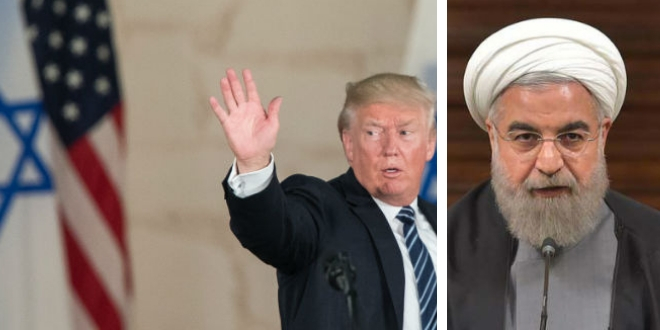The United States has put the European Union on notice to not evade sanctions on Iran.
“The choice is whether to do business with Iran or the United States,” Sen. Tom Cotton (R-Ark.), told the Associated Press. “I hope our European allies choose wisely.”
German Foreign Minister Heiko Maas said Monday that the E.U. was about to create an alternative mechanism to send funds to Iran that would circumvent U.S. sanctions on the regime. He said Germany had been working on it with France, the United Kingdom and other E.U. members.
“This has always been our goal and we will implement it,” said Maas.
The E.U. has repeatedly expressed opposition to the U.S. withdrawing last May from the 2015 Iran nuclear deal in addition to reimposing sanctions along with slapping on fresh economic penalties, and therefore has sought to help Iran cope with U.S. sanctions.
The Brussels-based Society for Worldwide Interbank Financial Telecommunication, or SWIFT, blocked Iranian access to the international financial transaction system shortly after America reimposed its second round of sanctions in November. Iran will still be able to access SWIFT for solely humanitarian purposes.
One way Iran has sought to evade U.S. sanctions is through cryptocurrency.
“We should oppose efforts to create foreign financial channels that Iran could use to circumvent America’s maximum pressure campaign against it, especially when humanitarian exceptions are already in U.S. sanctions laws,” Sen. Marco Rubio (R-Fla.) told the Associated Press.
This development comes as the U.S. State Department told Congress this month that it would waive some Iranian sanctions to permit American companies to sell spare parts to Iranian airlines to operate aging, U.S.-built Boeing planes, despite the United States enacting sanctions last week targeting the Iranian aviation industry.
The waivers raised eyebrows on Capitol Hill as some lawmakers are considering legislation to specifically target Iran’s civilian aviation sector. Iran hawks outside the administration have expressed concern as well.
Finally, the United States issued temporary waivers in November to several countries over importing Iranian oil. Japan’s Cosmo Oil resumed importing oil from the Islamic Republic this week by taking in 850,000 barrels of Iranian crude.
Source: Israel in the News

